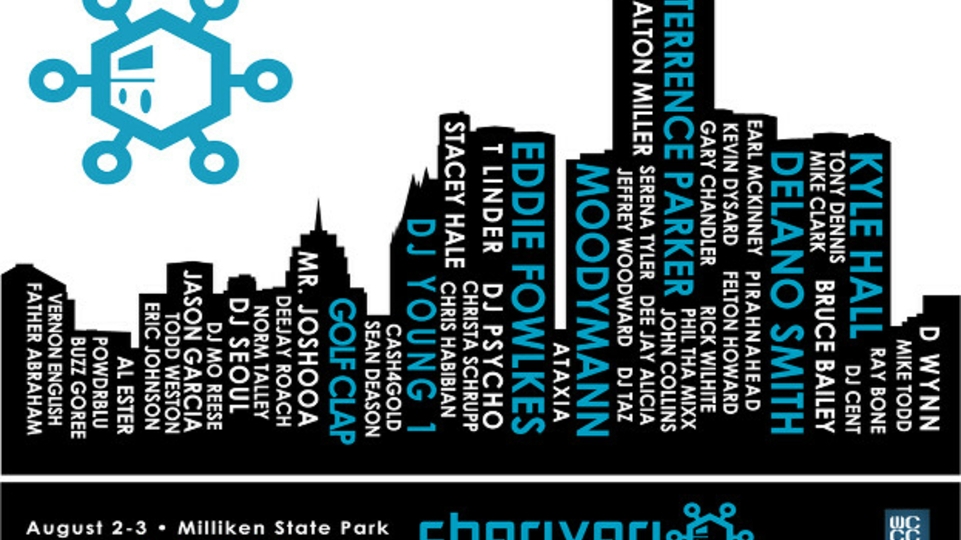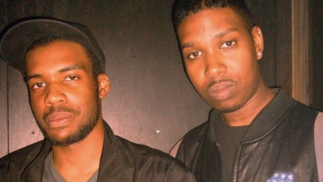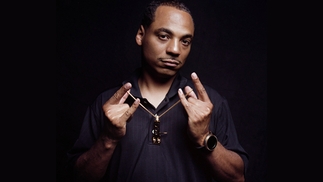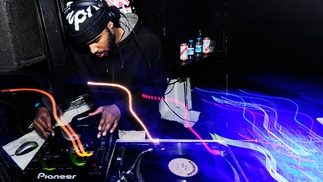LET YOURSELF GO AT CHARIVARI DETROIT
Free festival on August 2-3 featuring Moodymann, Kyle Hall, Delano Smith & more

words: REISA SHANAMAN
On August 2nd and 3rd, Detroit will be treated to a unique, unprecedented and totally free event, as Charivari Detroit takes over Milliken State Park, right on the Detroit River. From 10am to 10pm, some of the city’s most heralded DJs will spin on two stages, bridging the gap between generations, and bringing fun-seekers out in full force.
One of the oldest names in the promotion game, Charivari has been around since 1980. Taking cues from disco before the birth of techno, Charivari was formed as a social club by business savvy high school students in northwest Detroit, and played a paramount role in paving the way for the club culture we know today. DJ Mag sat down with two of the event’s organizers, Steve Dunbar and Todd Johnson, aka Clark Drive, who have both been involved with Charivari since the beginning.
Can you tell us about those first parties in the early ‘80s?
Todd: “There was a very strong progressive music scene that really started in the tail end of the ‘70s and went through the mid-‘80s, when it went into techno. These were just kids that got together and started throwing parties for the fun of it. In charging, they started learning that this was quite a business endeavor. I think the thousands of dollars that were exchanging hands turned it into something else.”
Steve: “We’re talking about backyards and basements, things like that. Backyards were really the start of it. Masses of kids would just come to these backyards. We would charge maybe five bucks and walk away with $2000 to $3000.”
Todd: “And nobody really knew. Your parents would say, ‘Sure, you can throw this backyard party,’ expecting maybe 50 to 100 kids, and they weren’t expecting you were going to charge. So you start at $3, and then this big wave comes and somebody would say, ‘Hey, let’s charge $5.’ And they’d pay it. So then someone says, ‘Well, let’s charge the guys $7,’ and people kept paying it. So we began learning that there was some business involved.
“There were stores that started recognizing we were coming in and buying clothes. So those stores would sometimes give you money to throw a party. It was the early form of sponsorship. We didn’t even know what the hell sponsorship was, we just knew that some store told us we could put our fliers in it and would give us a leather jacket to wear.
“It was mostly a northwest Detroit thing. So it really came out of Mumford, Cass Tech, Henry Ford, Redford, and then some of the private schools, like Benedictine, St. Mary’s of Redford, and University of Detroit Mercy. They called it Northwest Prep. Ultimately, we moved inside to more structured environments. People were renting hotel ballrooms, The Rooster Tail, The Bonnie Brook, all sorts of places like that. It just became another business endeavor.”
Steve: “It was the upper middle class and lower upper class demographic of kids that gravitated to this scene, or this subculture, that we organically morphed into. I think that was unique in nature.”
Todd: “It was pretty much all one race, African American. There was probably a smidgen of caucasian, maybe five percent, depending on what school you came out of. For the most part, it was all African American up until around the mid-‘80s. I think when the Music Institute opened things started to get a little more multicultural.”
How was promoting done for those parties?
Todd: “There was no internet, no texting. People had a phone list and you had an old school snail mail list where you might have sent out a few things. The rest was done in the street, hand-to-hand battle all the time. You went up to the schools, the malls and skating rinks. It was very primitive. Now promoters just have to push send and they hit everybody. Or they go on Facebook. We didn’t have that. So we come from that real in-your-face strategy, as far as promoting. That’s kind of what we’ve brought to this [event]. We’ve got multiple fliers and t-shirts. We like the physical touch.”
Steve: “We aren’t relying so much on social media to make this thing happen. As far as I’m concerned, the personal touch of putting something in someone’s hand [allows you to] engage with them. There’s feedback and a response. It’s a personal connection that you make. You put a name with a face and it becomes more intimate. We’ve cultured real relationships through this process.”
Todd: “How we do things, and how we think about things, it’s kind of old school and new school at the same time. We’re easy to adapt to whatever’s out there. So we’ve used not only the old methods, we’re using all the new methods, too. We have all the social media, the street teams, the QRS codes on the flier. Even the DJ line-up is very old school, but with the latest guys too. We just wanted to get together everything that’s good about this scene.”
Steve: “And try to do it in a Charivari style.”
Those early Charivari parties were really influential. The first techno record was even named after them. Did you know at the time you had something special on your hands?
Todd: “Hindsight is always 20/20. Everybody would like to go back and say, ‘Oh, I planned this!’ Personally, I think we were all just trying to have fun. And make a little money. We were a greedy bunch of kids once we learned we could make money out of this and that we were good at it. But I think, for the most part, everybody was just trying to have fun.”
Steve: “After high school we went to college. A lot of us went away to school, so it was pretty much over. We would come home on holidays and so on, but the vast majority of us branched out and got on with our lives, our professions and our careers. We did not really know what we were doing back then, and how it morphed into what is relevant today. You always say, ‘If I had the opportunity to do it again things would be different.’ This is kind of our opportunity to do it again. And hopefully things will be different.”
How have things changed since those parties in the early ‘80s?
Todd: “DJ pay then was about $150, and you played for the whole night. There were no partners or sidekicks. If I hired Steve, Steve played the whole time, say from 10pm until 2am. The only guy he brought with him was to watch the records so he could go to the bathroom sometimes. Now you’ll have a line-up and you can’t even keep track of them all. There will be 14 DJs in five hours. That’s unusual to me.
“And some of the DJs, I don’t understand where they came from. They have no skills, they’re just playing records. They don’t have any headphones on. Some of them just put a CD in there, and the set’s already done. We didn’t have the sync button. If you look at the pictures of old DJs, you’re going to see a guy with his head locked on a headphone. Just going from record to record took minutes.”
Steve: “Back then, everyone couldn’t do this. There were very few DJs. Now 60% of the people that attend these events call themselves ‘DJs.’ I’m serious, there were only a few people who could do this, because it was a skill and turntables were used as instruments. You had to master the instrument. Everyone could not do it. Things have changed quite a bit.”
Todd: “I used to practice down in the basement with a metronome! Finding the beat. Now the machine tells you the beat. I look at these guys and I just laugh. Now I could get a laptop, a thumb drive...”
Steve: “A PlayStation! They tell me you can do that stuff on a PlayStation now.”
Todd: “We also came more from a promoter side. It was about the promotion, and the social club is what drove the people. Now it’s flipped, from the promoter back to celebrity DJ. And I think we’re bringing the concept of promotion back. Charivari is about Charivari. It’s not about all these individual DJs. We have a mob of DJs playing, but [on the flier] the names are in no particular order. The font is no particular size. We’re not used to the DJ deciding anything. It’s our dime, it’s our concept, we decide. We come from a non-hierarchy. Here’s the pie, everybody is getting a slice.”
Is this the first time the Charivari brand is being revived to the public in a major way?
Todd: “The Charivari brand of the social club has been used every now and then by members for picnics, parties and gatherings of their own. This is now a corporate entity that contains some of the original members. Steve was an original member. I was an original guy, doing the sound and lighting and I even coined the slogan. It has some of the basis of that, but it’s not a social club anymore. It is a business entity. It’s more structured now. We’d like this to be an annual event, and we’d like to grow this to something that’s traveling, to bring our style of partying on the road.”
I was watching the Spin Cycle series on the Charivari YouTube page and Al Ester cites a Charivari party in 1982 as introducing him to the scene, and Delano Smith also says he came out of it. Were a lot of the old school cats on the line-up associated with it back then?
Steve: “Absolutely.”
Todd: “Every old school guy [on the line-up] has played a Charivari of some type. And even some of the new guys. Kyle Hall’s first professional gig was under Steve.”
Steve: “He was 16 years old. His father and I are good friends, and his father was involved in that scene. He said, ‘Hey, I have a son and he really likes playing this music, why don’t you let him play. He can do it, Steve.’ I thought, ‘He’s a kid, he doesn’t understand.’ And I was blown away, I really was. To see what he’s become, I’m not surprised.”
It’s really incredible that you were able to curate such an impressive lineup and, correct me if I’m wrong, but it’s all artists based in Detroit.
Todd: “Pretty much all Detroit based. We invited one girl from Chicago, Dee Jay Alicia, and Steve discovered a young lady we just had to have, a little 12-year-old, DJ Young 1. When we saw this girl’s skill level, she really fit the bill of what we’re talking about with bridging this generation gap. She’s played at the White House and was sponsored by Stanton to go to Scratch DJ Academy.
“There will be about 60 to 70 DJs, including the after parties, and they’re all Detroit-based except for those two. We started saying it’s the greatest combination of Detroit DJ talent ever, and nobody has challenged that.”
I can’t help but think that there isn’t really anywhere else in the world that could put together a line-up like this, and have the history there like you do.
Todd: “Eddie Fowlkes says that. He says he believes that Detroit has the greatest DJs in the world. And he’s not saying that because of him, or Charivari, he’s saying just in general. He travels all over the world, and he says there’s no big chunk of DJs anywhere else like you have in Detroit. And we only have a snapshot [booked].”
What’s the target audience for Charivari Detroit?
Steve: “With us, there are no blinders. Black, white, gay, straight, tall, short, fat, skinny. If you’re about having a good time, this is for you.”
Todd: “If you like music, loud ass music, that’s all we’re promoting. Music and fun. Anything else, you go to go. That’s what security is for.”
Breathing new life into the Charivari brand, Todd and Steve are putting the parameters in place for what could easily be one of the premiere events of our time. Aiming to pump money into the local economy, break down barriers and return to the roots of it all, Charivari Detroit 2014 is bringing the scene full circle. Saturated with local pride and steeped in history, DJ Mag enthusiastically endorses the two-day experience, and respects the legacy from which it comes.
For more information or to become a sponsor visit www.charivaridetroit.com.


